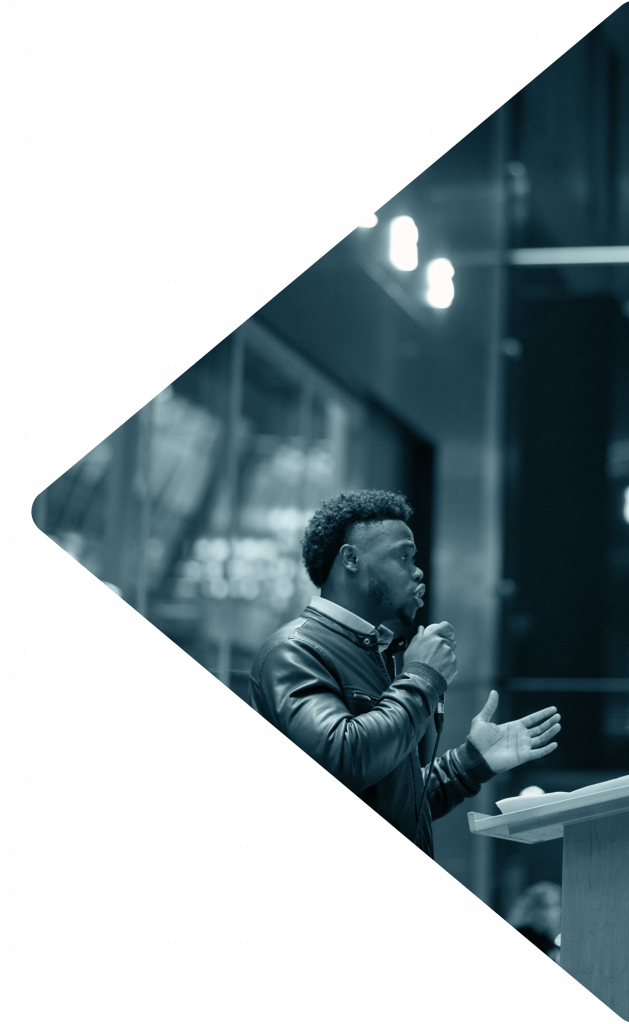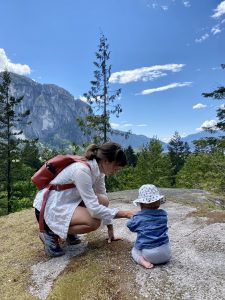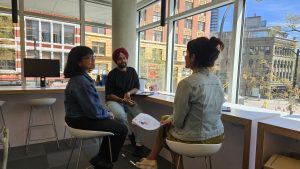
On Histories and Knowings: Indigenous-Palestinian Existences
There will be a place in time where Indigenous existences, in all of our complexities and imperfect humanities, are not subject to debate or exceptionalism.
Our programming centres on the belief that the future requires a transformed economy that is dynamic, just, sustainable, and resilient.
From our position within an academic institution, we acknowledge that we continue to benefit from oppressive systems. We desire to use this power we hold to challenge the status quo. We don’t have all the answers but believe a transformed economy will be built by community-led solutions and the redistribution of leadership.
To get there, we hold space for programs and processes to address deep-rooted societal challenges.

RADIUS labs are multi-year commitments working in reciprocal relationships with communities most impacted by the challenges being addressed. Our labs aim to build shared power to influence unjust socioeconomic systems, advance the solutions prioritized by community, and co-identify and advance interventions for broader change. Our labs are social, experimental, systemic, and equity-centred.
Our Labs are Social: They are designed to create a space to convene various groups of impacted communities and other stakeholders. They are a place to activate the collective intelligence, creative capacity, and leadership potential of all in the system.
Our Labs are Experimental: They are a place for experimentation; therefore, we need to let go of the need to control outcomes, encourage different ways of tackling issues outside of the traditional methods, and recognize that the work is emergent.
Our Labs are Systemic: They actively seek transformative systems change rather than providing band-aid solutions within the status quo. Understanding that decisions can have implications on the whole system, whether culturally, politically, in legislation, or economically, helps address complex issues equitably. Labs explore multiple systems, communicate understanding, and allow for the identification of knowledge gaps, intervention points, and insights.
Our Labs are Equity-Centred: They intentionally involve and engage with impacted and historically marginalized community groups to problem solve. They follow a reciprocal and relational process in which the lab team builds relationships with purpose instead of extracting knowledge and information. Labs aim to move beyond tokenism, both in terms of how the team is in relationship with the community and its internal staffing and operational structure. This is not ticking a checkbox of appearing equitable but rather putting effort into ensuring the different people involved feel included. We use a Liberatory Design framework for many of our labs, which offers creative problem-solving processes based on equity, humility-building, integrating history and healing practices, addressing power dynamics, and co-creating alongside community.
RADIUS is currently running labs in the following thematic areas:

There will be a place in time where Indigenous existences, in all of our complexities and imperfect humanities, are not subject to debate or exceptionalism.

Véronik with her child, Niobe, with Siyám Smánit (Stawamus Chief) peeking in the background. From my window stands Siyám Smánit: welcoming yet imposing. Solemn yet exuberant. And, above all— for

First ever Designing for Equity Masterclass Alia and Ilhan (facilitators) discuss a concept with a participant Participants had meaningful conversations sharing learnings from various sectors Participants came from various sectors